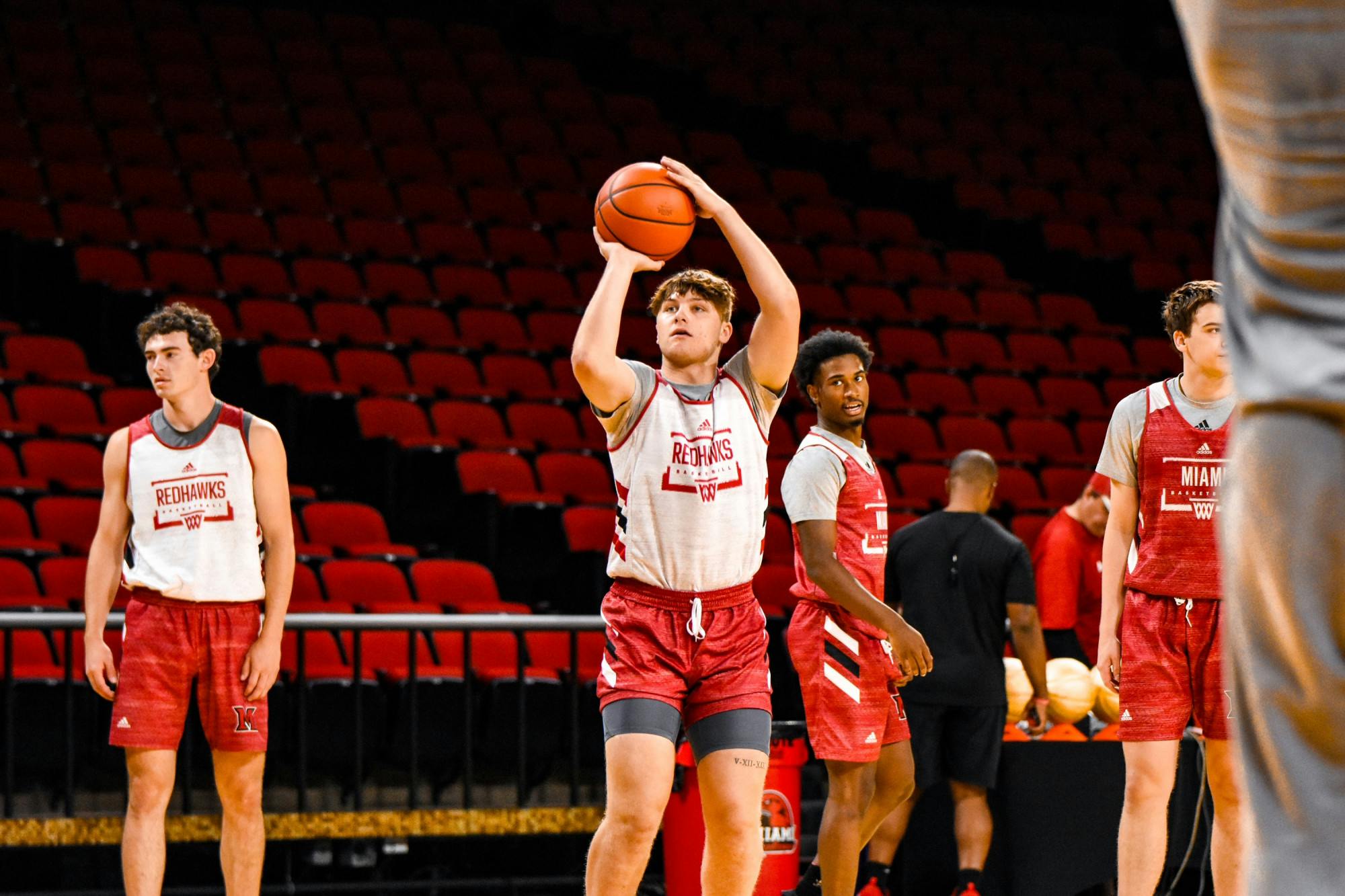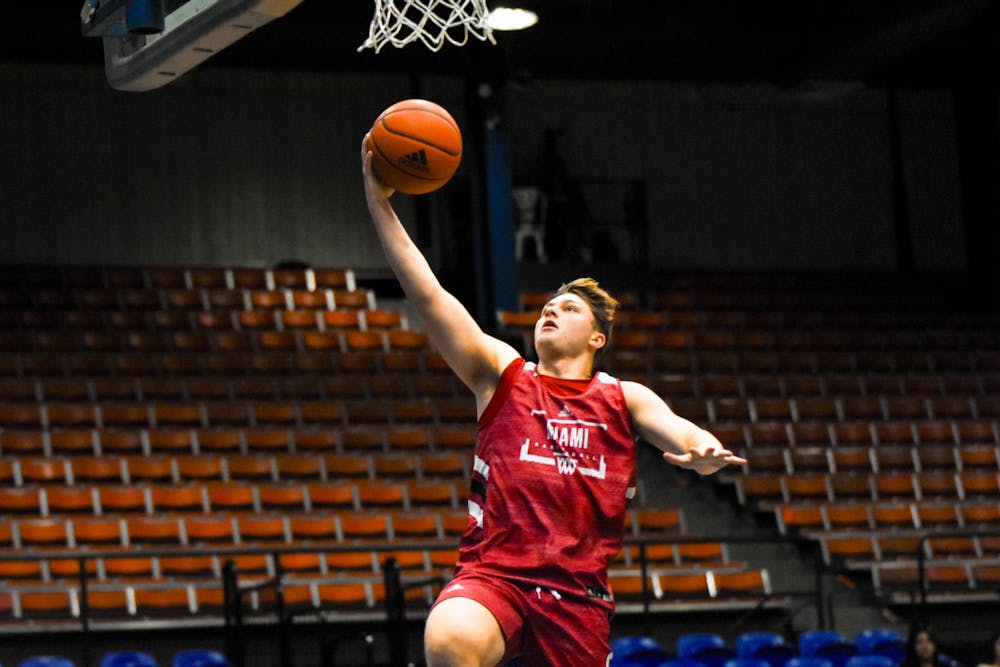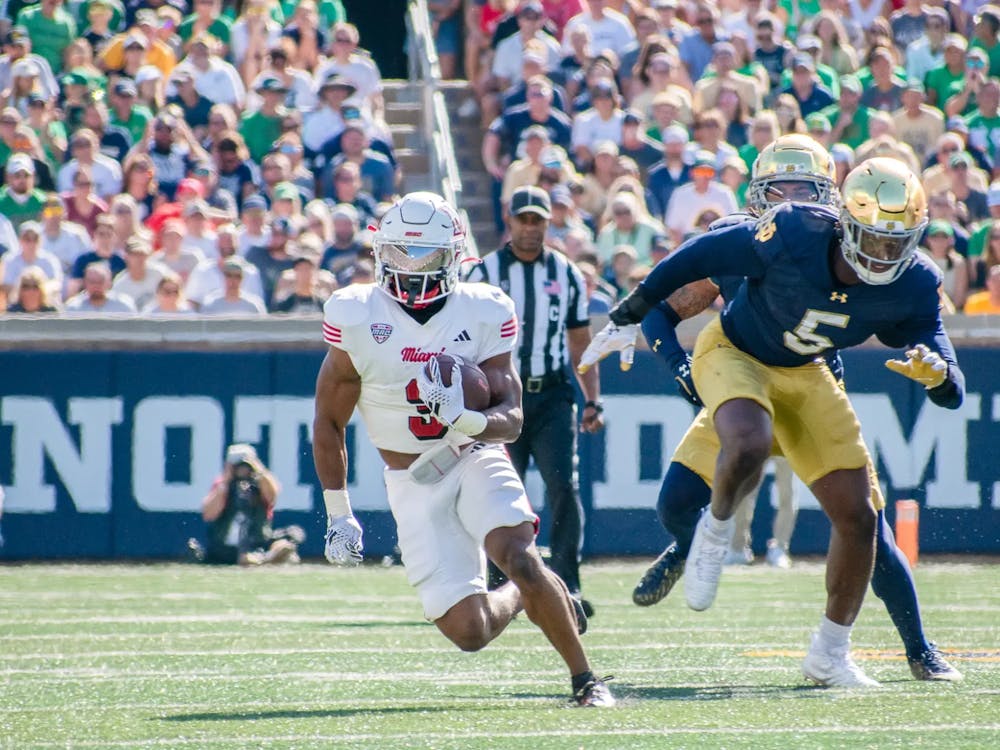No matter their skill level, first-year college athletes always face an adjustment when transitioning from high school to college.
Evan Ipsaro was a standout basketball player at Covington Catholic High School in Covington, Kentucky. In his senior campaign, the 6-foot guard averaged 25.2 points per game, earning him the honor of The Cincinnati Enquirer’s Boy’s Basketball Player of the Year.
Head coach Travis Steele has been interested in Ipsaro’s potential since he was a sophomore in high school. Shortly after Steele took control of the program, he offered Ipsaro a spot on the team.
Ipsaro’s connection with Steele put Oxford at the top of his interest list. A week after his official visit, he committed to be a RedHawk.
“Everything [Steele] said, I believed and I bought into,” Ipsaro said. “I trust what he’s trying to do here.”
On June 10, Ipsaro settled into campus. Moving in would be the only easy part, as summer workouts with the team began two days later.
“Those workouts were hard, but it was kinda just like an [introduction],” Ipsaro said. “Getting to learn everything, like the basic stuff, they want to teach.”

Ipsaro is hoping to make an impact in his first year on a RedHawks team that snuck into the Mid-American Conference tournament last season.
Ipsaro’s summer workout schedule in college looked immensely different than it did in high school. Despite Covington Catholic training basketball nearly year-round, he was unprepared for what a collegiate basketball summer would be like.
On an average day, Ipsaro would lift from 6:45 to 8:15 a.m. After eating breakfast, he would head to class from 9:15 a.m. to 12:30 p.m. Team workouts would follow at 1:30, with a study hall right after.
“My body definitely took a toll,” Ipsaro said. “Once I got back, I was knocked out cold. I was taking naps, and then I’d wake up, do my homework and then fall right back to sleep. That was my day.”
Ipsaro also noticed the difference in effort needed to succeed on the court. In high school, he excelled at putting the ball on the floor to score; however, getting to the same spot at the collegiate level is more difficult.
Enjoy what you're reading?
Signup for our newsletter
“Another thing I struggle with is just slowing down because, in high school, you could just drive by people,” Ipsaro said. “Like, I’m not trying to sound cocky, but that’s basically how it was. Here guys are a lot stronger, so you got to find different ways to get by people.”
Ipsaro’s summer struggles on the court are not unique to him. According to Steele, the speed and physicality of the game are the biggest challenges for first-year athletes.
“Generally speaking, a player that is getting recruited to the Division I level out of high school probably dominated in games and practices with little resistance,” Steele said. “In college, everyone is talented. So freshmen have to learn to bring it every day.”
Fortunately for Ipsaro, members of his team, such as assistant coach Johnathan Holmes and sophomore guard Ryan Mabrey, were there for him during the summer.
“They’re never pissed off at a question I ask them,” Ipsaro said. “They always answer them with the truth. They tell me everything they know because they know they also want to win a MAC championship.”
When it is time for new first-year RedHawks, Ipsaro would tell them that adjusting their game comes with mistakes.
“Come in with an open mind, and don’t be afraid to make mistakes,” Ipsaro said. “No one wants to mess up, but you’re going to mess up. I don’t want to say it’s a completely different game than high school, but it is. You’re going to mess up.”




